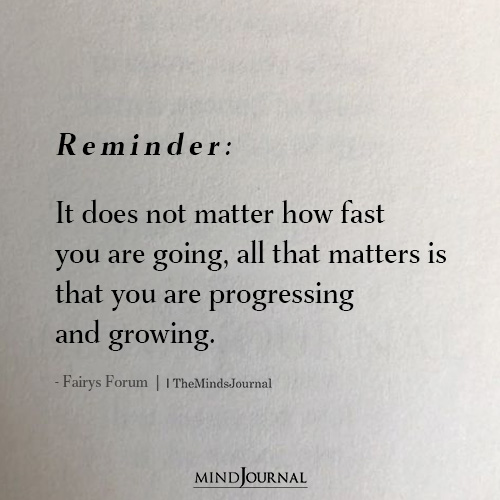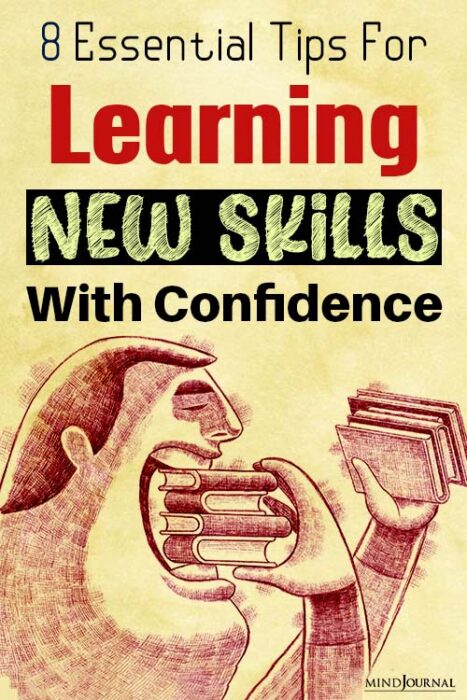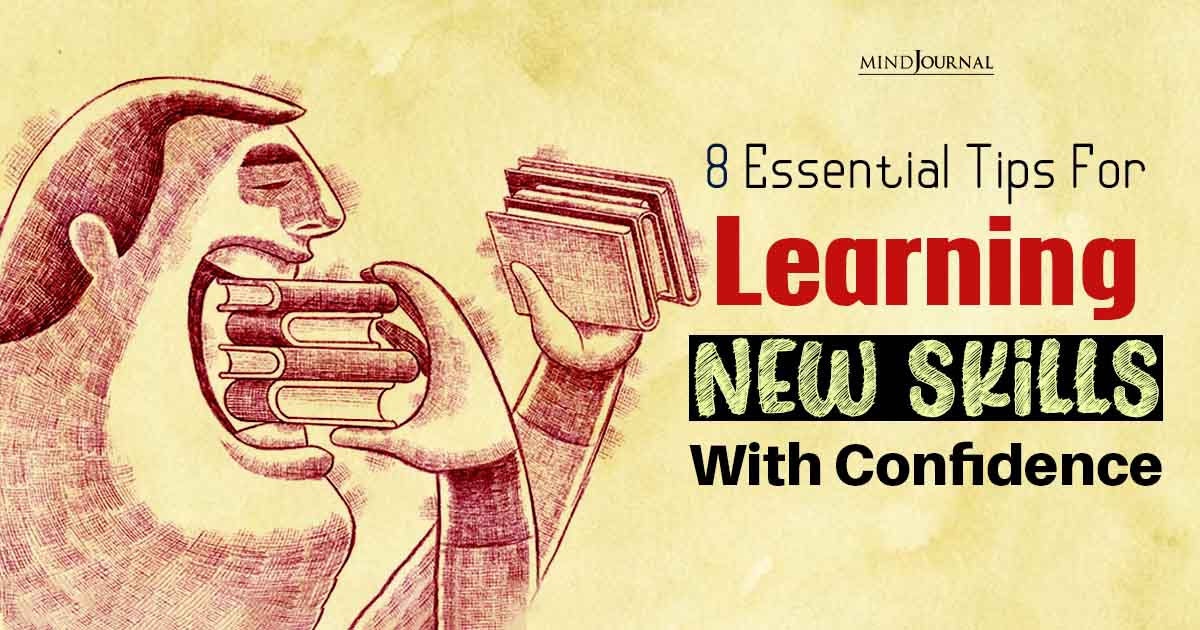Learning new skills can sometimes feel like an intimidating journey, doesn’t it? If you have ever felt stuck or didn’t know what to do while learning a new skill, then you’ve come to the right place. This article is going to provide you with some valuable tips if you are wondering how to learn new skills.
KEY POINTS
- Setting a clear goal and breaking a skill into smaller components can help people learn new skills.
- Practice for new skills should be thoughtful, slow, and deliberate rather than rushed.
- A growth mindset is the belief that abilities are developed with effort.
Learning new skills can be a great way to keep an aging brain in shape. There is great joy in reinventing yourself by discovering unfamiliar areas of expertise. Here are some general guidelines for how to learn a new skill (Vanderbilt, 2021).
8 Tips For Learning New Skills
1. Establish learning goals.
Having a clear goal in mind before you begin your journey is essential. Giving yourself something to work for is a great way to give meaning to your study.
Having narrow and precisely defined goals and questions is far better than broadly defined goals and questions. Well-defined and achievable goals fuel motivation.
Related: 15 New Skills To Learn For Rapid Self-Improvement
2. Start small.
Breaking the skill into small chunks and mastering them one at a time until the act becomes automatic is an effective way of learning. Smaller goals are easier to reach and increase your motivation. Small steps make the skill seem easier in the beginning.
3. Remember why you’re doing it.
It is important for people to shield their crucial goals from competing goals during goal pursuit. One way to accomplish this is by reminding yourself of its importance. Obstacles such as self-doubt can deter people from taking up new pursuits as adults.
Negative self-talk can manifest in a variety of ways (e.g., what’s the point of starting something new when you know you’ll never be great at it?’, or ‘It is too late’, etc.). You are learning a new skill for your personal growth (Painter, 2019).
Learning new skills changes the way you think or the way you see the world. For example, learning to play an instrument changes the way you listen to music.

4. The power of intrinsic motivation.
Do something because you love it. Intrinsic motivation refers to wanting to do something for its own sake. The focus is on the pleasure that arises from the act of doing something rather than achieving some ultimate goal.
Activities such as music and the arts, reading, intellectual discovery, sports, and a host of other fulfilling pursuits are often sustained by the joy of the activity itself.
5. Mental representations.
A mental representation shows you what you are supposed to be doing. Mental representations make it possible to monitor how one is doing, both in practice and in actual performance.
For example, in music, mental representation (how the piece should sound) allows expert musicians to duplicate the sounds of a piece that they want to produce while they play.
Students with better mental representations of the music are better at correcting mistakes in practice.
Related: How To Make Life More Exciting?
6. Thoughtful practice.
Thoughtful practice is purposeful and knows where it is going and how to get there. Practicing a suboptimal technique could lead to suboptimal results. Being deliberate requires you to slow it down.
When you work slowly, things become simpler. New information needs to be learned slowly. You don’t perform better when you speed through a course.
7. Adopt a growth mindset.
A “growth mindset” refers to the belief that abilities are not fixed but can improve with effort (Dweck, 2006). Just because you are not immediately good at something doesn’t mean you won’t be eventually. We’re bad at everything before we’re good at it.

8. Take advantage of being an adult learner.
As we age, we are more likely to take a step back and see the big picture. As we age, we tend to forget the details of events more readily than when we were younger.
At the same time, we do an excellent job extracting the point, or the general theme, of those same events. While young children pick up new skills more easily, they also have more trouble with seeing the big picture and controlling their impulses.
Related: The Art of Self-Discovery: How To Find Your Skills And Talents
The take-home lesson is that to keep our minds sharp in older age we need to engage in new challenges. Lifelong learners get great satisfaction from pushing themselves to develop new skills.
References:
Dweck, C. S. (2006). Mindset: The new psychology of success. New York: Random House.
Painter, Nell (2019). Old In Art School: A Memoir of Starting Over. Counterpoint Press.
Vanderbilt, Tom (2021). Beginners: The Joy and Transformative Power of Lifelong Learning. Vintage Books.
Written By Shahram Heshmat
Originally Appeared On Psychology Today









Leave a Reply
You must be logged in to post a comment.